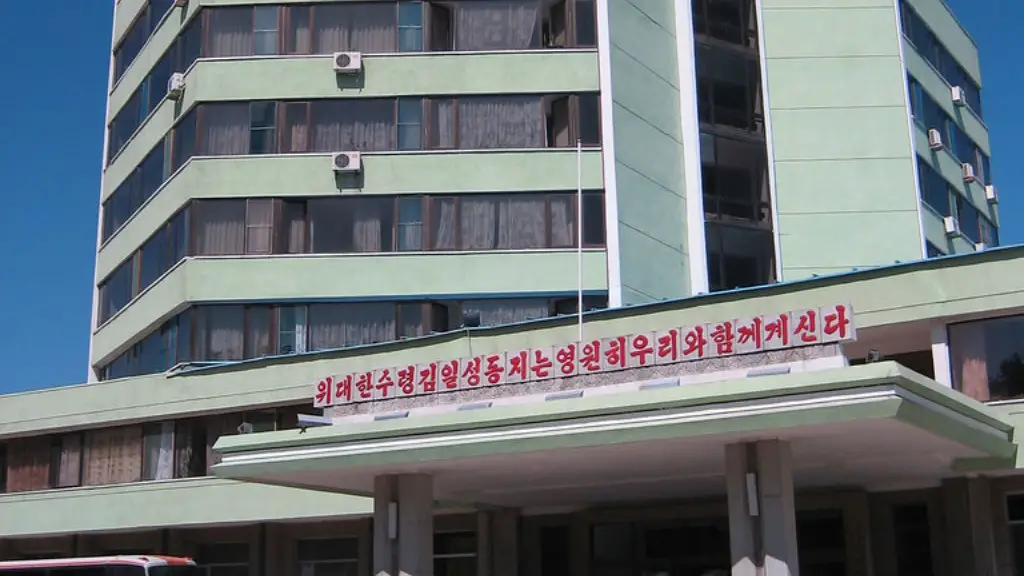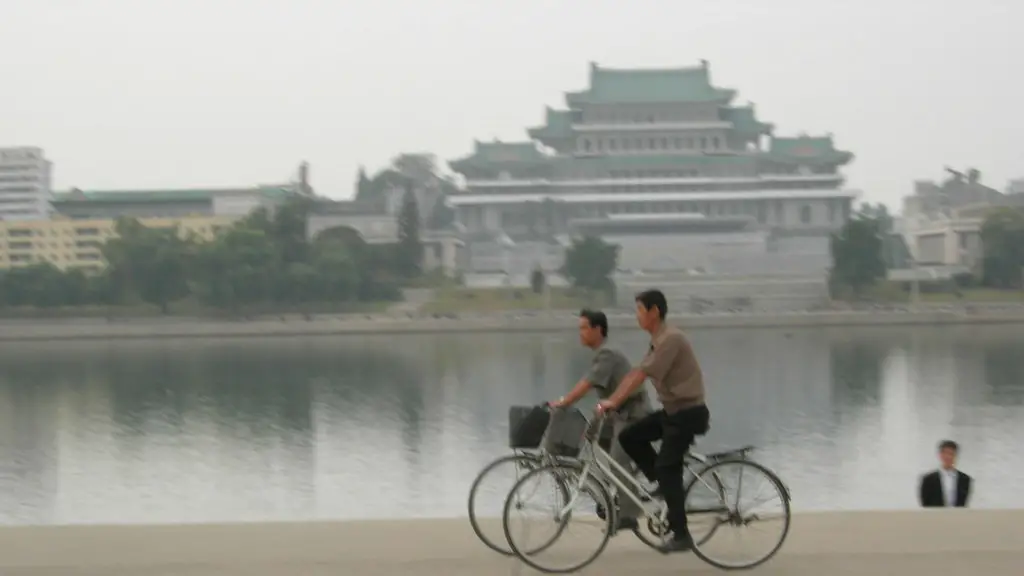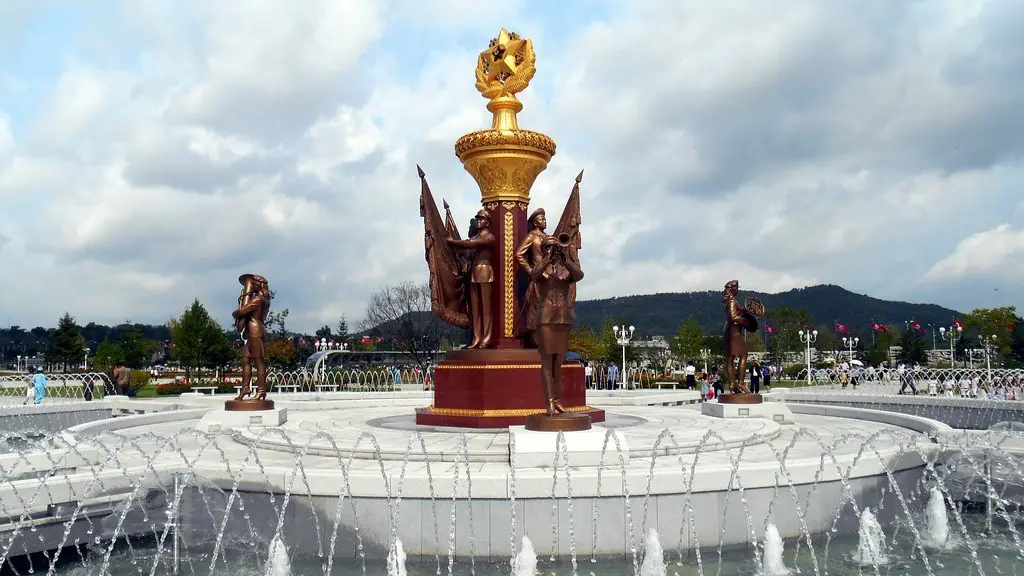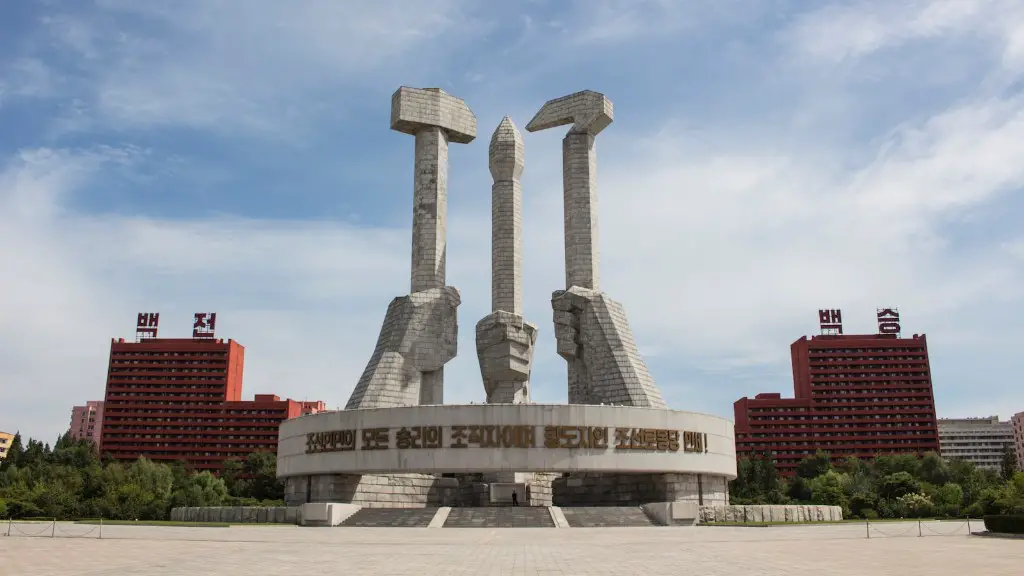Firstly, the country has been rocked by upheaval and instability in recent weeks. Kim Jong-un, the Supreme Leader of North Korea and the world’s youngest head of state, abruptly disappeared in April, leading to widespread speculation about his health and whereabouts. Despite the North Korean government’s tight control over their media, rumors have been circulating in both local and international outlets. Although Kim Jong-un has since been confirmed to be alive and in power, he has been noticeably absent from public functions.
The ongoing strained relations between the United States and North Korea have taken a turn for the worse. Tensions between the two nations escalated in late May when North Korea fired multiple short-range ballistic missiles off their eastern coastline. These tests, conducted in defiance of U.N. sanctions, drew immediate criticism from both the international community and the U.S. government. Prior to this, Pyongyang had made several highly provocative statements in the weeks preceding the missile tests.
Political turmoil is not the only thing that North Korea has been dealing with in recent times. The impoverished nation is facing its worst drought in nearly a century, with the United Nations estimating that 2.5 million people face food shortages in the coming months. In a nation where the average person already struggles to make a living, this comes as a crushing blow, and is likely to worsen the country’s humanitarian crisis.
The economic challenges facing North Korea seem to be increasing. The nation’s central bank is rapidly running out of foreign currency reserves and is unable to finance key imports. This is largely due to the ongoing global sanctions imposed by the U.N., which are crippling the country’s economy and making it increasingly difficult for the North Korean people to survive.
North Korean Defectors
In the face of increasing hardship, a growing number of North Koreans are risking their lives and fleeing their country. Every year, an estimated 30,000 people attempt to escape the oppressive and impoverished nation. Although the journey is long and perilous, these brave defectors take the risk to seek out a better life, often in neighboring China or South Korea.
Organizations such as Liberty in North Korea (LiNK) have been working to help North Korean refugees in their fight for freedom. These organizations provide assistance, resources and emotional support to help defectors adjust to life in their new homes. According to LiNK’s president Hannah Song, “Our mission is to liberate North Korean refugee-citizens from oppression and poverty through resettlement, reunification and reintegration.”
Political Speech Suppression
Freedom of expression is severely suppressed in North Korea, and even small protests can lead to severe punishment. Human Rights Watch reported that Kim Jong-un’s regime had detained or disappeared more than 120 senior officials in 2015 and 2016. Additionally, several high-profile musical artists have been imprisoned and tortured on charges of so-called political crimes. This serves as a stark reminder of the reality of living in North Korea under the rule of an oppressive government.
The internet and all forms of media are heavily censored, and international media is also routinely blocked from broadcasting inside the country. North Korea has no independent press, and the only source of information is the Korean Central News Agency, a state-run media organization that closely controls and censors the news. This has the effect of ensuring citizens remain in the dark about world events, such as developments in other nations and the activities of the international community.
International pressure and sanctions are unlikely to bring about any meaningful change in North Korea in the near future. Even if the international community manages to pressure North Korea into stopping its missile tests, there is no guarantee that it will lead to any meaningful concessions in other areas such as nuclear capabilities, human rights abuses or humanitarian aid. It is unlikely that Pyongyang will enter into meaningful negotiations with the rest of the world.
The Missile Shield
North Korea’s government has been investing heavily in its missile defense system, pouring money into a project to shield the country from nuclear attack. The secretive nation has developed the capability to launch missiles at tremendous speeds, and its state of the art missile launcher can now fire multiple missiles at a time. It is estimated that the missile shield costs the nation about a billion dollars annually, with the majority of these funds coming from its foreign currency reserves.
Unfortunately, little is known about how these funds are being used. But it is clear that North Korea has been investing heavily in missile technology and defense systems, and these investments are unlikely to bring about any positive developments for the country. The regime is heavily focused on its military buildup, using scarce resources that would otherwise benefit the people of North Korea.
War Games
The U.S. and South Korea begin a series of joint military exercises every year. Known as the Foal Eagle, these drills include simulated combat operations and make use of a large number of troops and aircraft, as well as naval forces. This year, the exercises are being conducted against the backdrop of increased tension between North Korea and the U.S. and South Korea. This has led to Pyongyang denouncing these exercises and accusing the U.S. of using them as a pretext for military activity.
The Foal Eagle exercises are routinely met with condemnation from North Korea, and this year was no exception. The regime has denounced the war games, calling them a provocation and accusing the U.S. of preparing for an invasion. North Korea’s Foreign Ministry released a statement that labeled the exercises “nothing other than a dangerous military adventure.” The statement went on to declare, “No one has the right to provoke a nuclear war on the Korean Peninsula at any time.”
The Impoverished North Korean People
As North Korea prepares for a potential conflict with the U.S. and South Korea, it is worth remembering the plight of the nation’s citizens. Parts of the country are facing their worst drought in decades, leading to food shortages for much of the population. The government’s decision to invest heavily in the country’s military capabilities is coming at the expense of the people.
Meanwhile, the economic strains caused by U.N. sanctions are only making the situation worse. This has resulted in a growing number of people attempting to flee the country in search of a better life. International organizations such as Liberty in North Korea are stepping in to provide assistance to these refugees, but they are facing an uphill battle against an oppressive and isolated regime.
Although North Korea remains highly secretive, the international community has a duty to investigate the situation and to be willing to take action if necessary. North Korea’s citizens deserve better, and their plight should not be ignored. In the midst of rising tensions, we must remember the people of North Korea and continue to fight for their freedom and rights.




